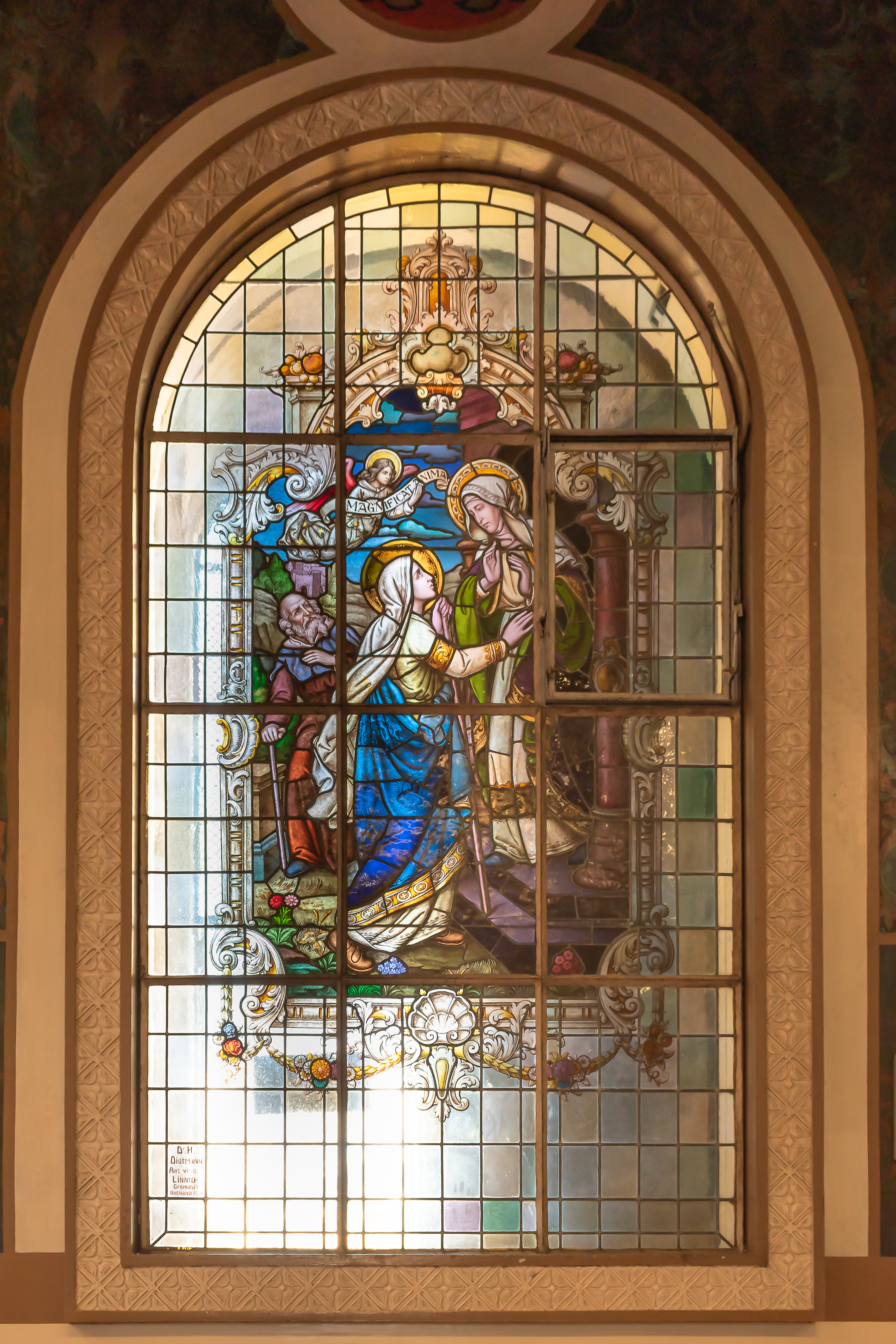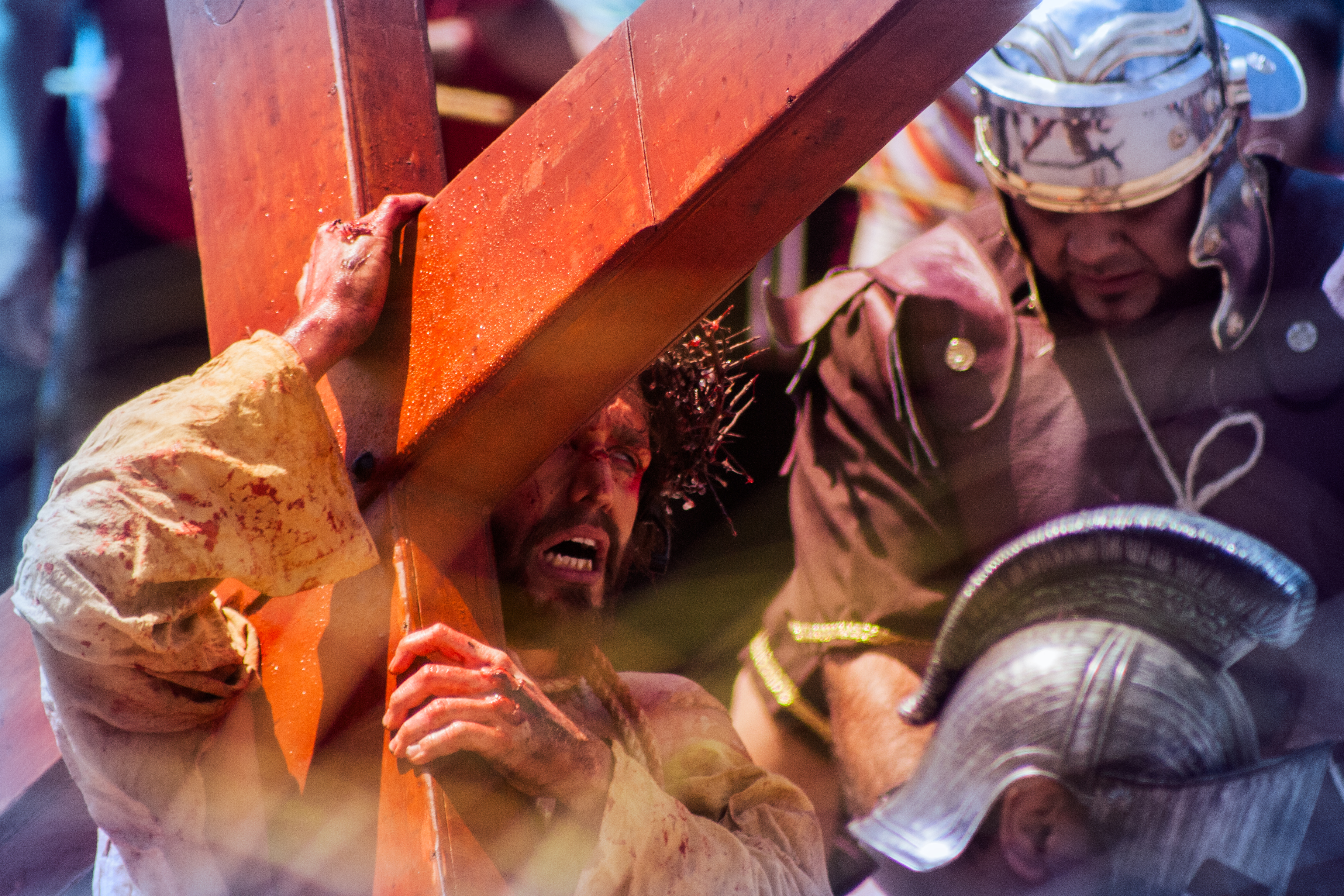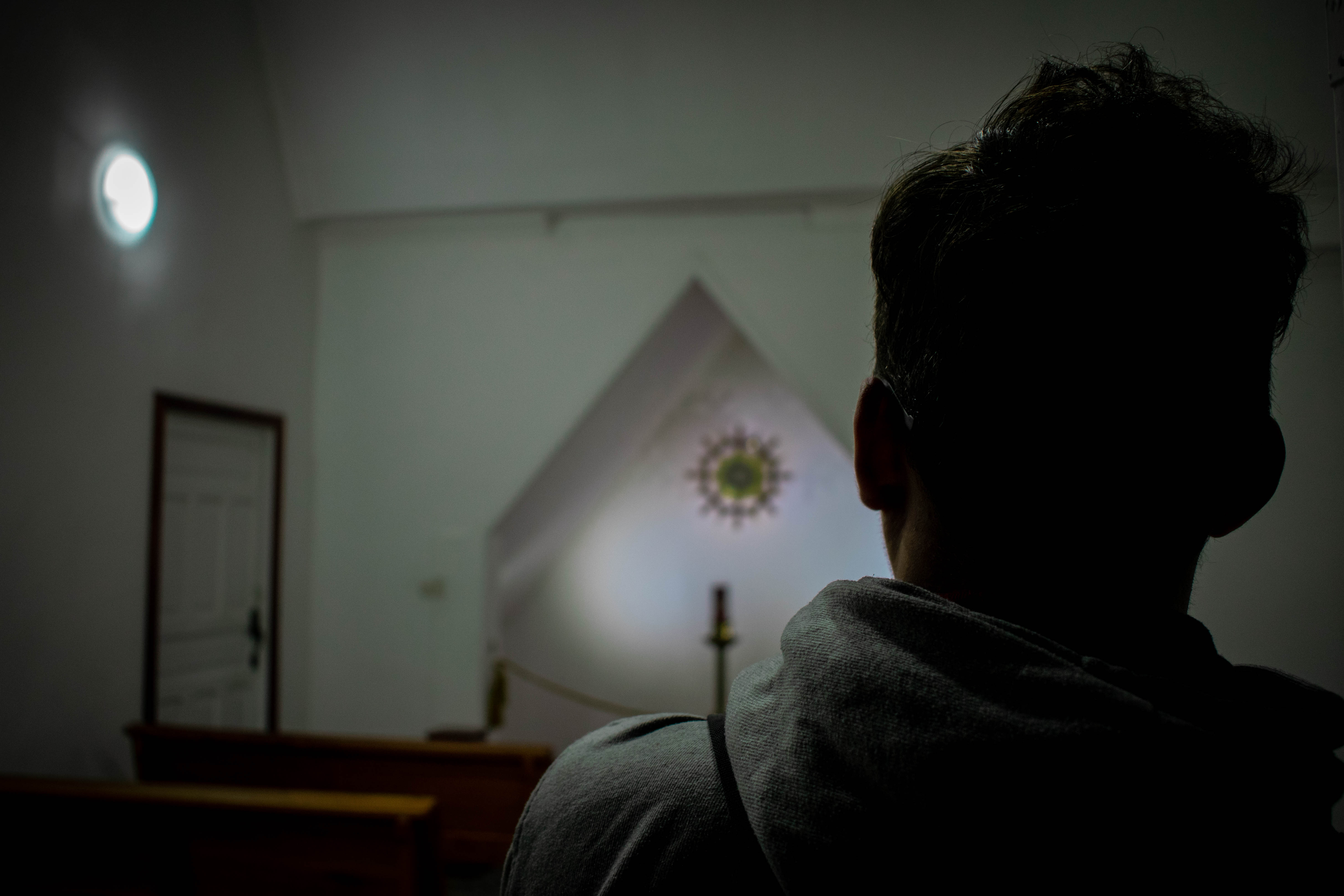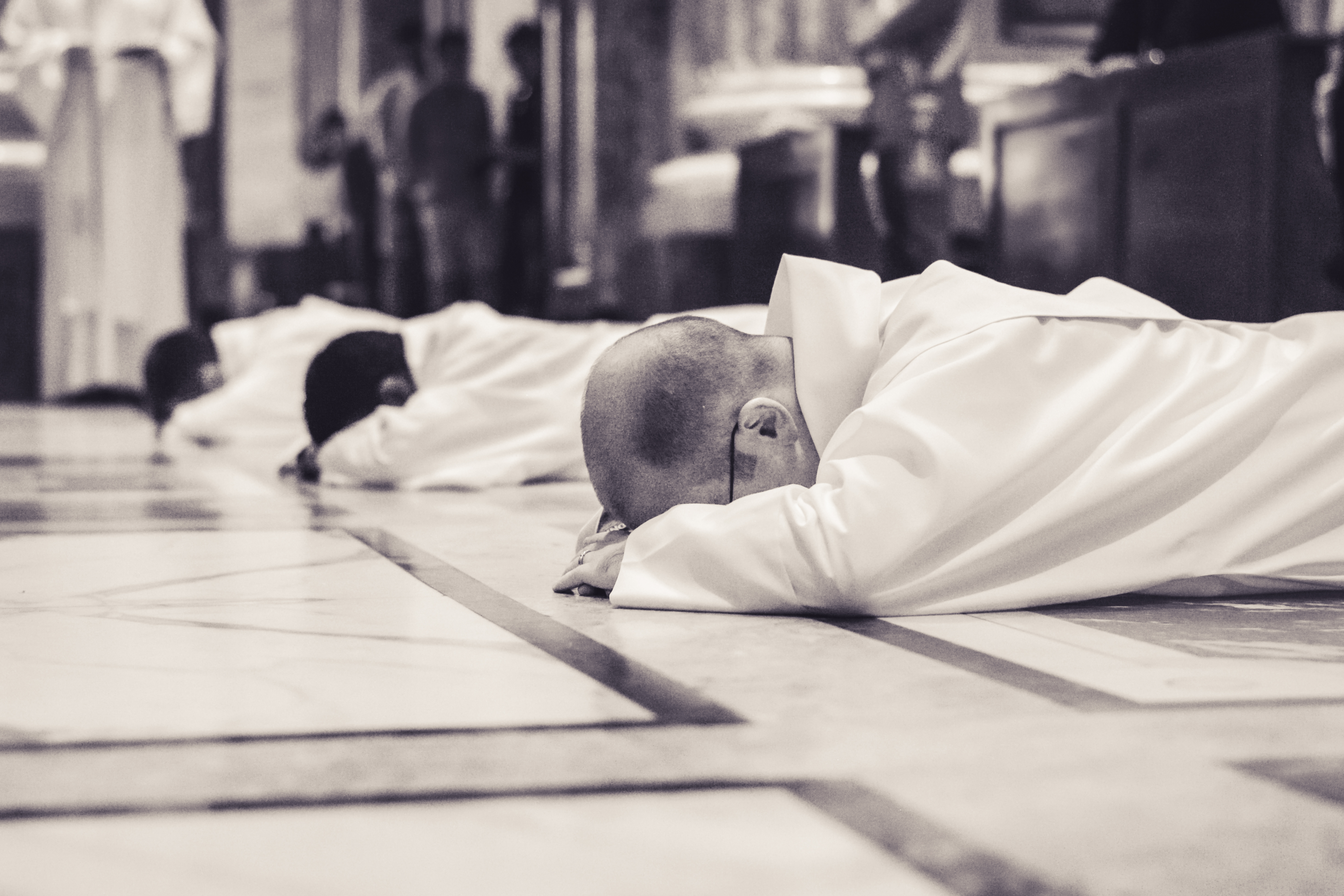It’s all about Jesus. Do you believe he is the Son of God or not? Do you believe he is who he says he is? If you do, it seems like we are not to question him. But I question him often. To be clear, I do not ask if he is Jesus, the Son of the Father; rather, I ask him those questions that come at me in my daily life. Why is it difficult to do the right thing? Why must I sacrifice, again, for the good of others? When will the mercy you give so generously be easy to give to others? Those are some of my questions. What are the questions you ask of Jesus?
In the first reading, those who believe are urged to hold fast to prayer and the mercy of Jesus, who is our salvation. He alone will keep us from stumbling and one day present us “unblemished and exultant” to God. I like the word exultant – great joy; I want great joy. Not only in heaven but here and now in my ordinary life. I want to be exultant. Can you imagine how attractive we would be as followers of Christ, as evangelizers, if we were exultant people?
Sadly, we are often waiting for life to be perfect or almost perfect before we give ourselves permission to be exultant. Can we reconsider that stance? We are reminded to keep ourselves “in the love of God,” and I think keeping ourselves there will help us with our attitude toward life and joyfulness.
Imagine if those in the Gospel who were questioning Jesus were more concerned with joy than with being right. They lost out on knowing Jesus and all that he had for them because of what? The Gospel says, “fear of the crowd,” but what did that mean? Was it pride or a desire for control? We can think we know the answer, but in the end, does that help us?
Not really. What would help us is to answer this question for ourselves: by whose authority did Jesus act and live and move as he did? The Father. And Jesus, along with the Holy Spirit and the Father, are all still moving in this world. They move with us, for us, and through us. And this is why we can be exultant!
Todo se trata de Jesús. ¿Crees que es el Hijo de Dios o no? ¿Crees que él es quien dice ser? Si es así, parece que no debemos interrogarlo. Pero yo lo interrogo a menudo. Para ser claros, no pregunto si es Jesús, el Hijo del Padre; más bien le hago aquellas preguntas que me surgen en mi vida diaria. ¿Por qué es difícil hacer lo correcto? ¿Por qué debo sacrificarme, nuevamente, por el bien de los demás? ¿Cuándo será fácil dar a los demás la misericordia que tú tan generosamente das? Esas son algunas de mis preguntas. ¿Cuáles son las preguntas que tú le haces a Jesús?
En la primera lectura se insta a los creyentes a aferrarse a la oración y a la misericordia de Jesús, que es nuestra salvación. Sólo Él nos impedirá tropezar y un día nos presentará “gloriosos y sin mancha” ante Dios. Me gusta la palabra exultante – gran alegría; Quiero una gran alegría. No sólo en el cielo sino aquí y ahora en mi vida ordinaria. Quiero estar exultante. ¿Te imaginas lo atractivos que seríamos como seguidores de Cristo, como evangelizadores, si fuéramos personas exultantes?
Lamentablemente, a menudo esperamos que la vida sea perfecta o casi perfecta antes de darnos permiso para estar exultantes. ¿Podemos reconsiderar esa postura? Se nos recuerda que debemos mantenernos “en el amor de Dios”, y creo que mantenernos allí nos ayudará con nuestra actitud hacia la vida y la alegría.
Imagínese si aquellos en el Evangelio que cuestionaban a Jesús estuvieran más preocupados por la alegría que por tener razón. ¿Perdieron el conocimiento de Jesús y todo lo que él tenía para ellos? ¿Por qué? El Evangelio dice por “miedo a la multitud”, pero ¿qué significa eso? ¿Fue orgullo o deseo de control? Podemos pensar que sabemos la respuesta, pero al final, ¿eso nos ayuda?
No precisamente. Lo que nos ayudaría es responder esta pregunta por nosotros mismos: ¿bajo la autoridad de quién actuó, vivió y se movió Jesús? El Padre. Y Jesús, junto con el Espíritu Santo y el Padre, todavía están moviéndose en este mundo. Se mueven con nosotros, para nosotros y a través de nosotros. ¡Y por eso podemos estar exultantes!
 Deanna G. Bartalini, M.Ed.; M.P.A., is a certified spiritual director, writer, speaker and content creator. The LiveNotLukewarm.com online community is a place to inform, engage and inspire your Catholic faith. Her weekly Not Lukewarm Podcast gives you tips and tools to live out your faith in your daily life.
Deanna G. Bartalini, M.Ed.; M.P.A., is a certified spiritual director, writer, speaker and content creator. The LiveNotLukewarm.com online community is a place to inform, engage and inspire your Catholic faith. Her weekly Not Lukewarm Podcast gives you tips and tools to live out your faith in your daily life.
Feature Image Credit: Peter Conlan, unsplash.com/photos/woman-jumping-on-green-mountains-LEgwEaBVGMo


 Kathryn Mulderink, MA, is married to Robert, Station Manager for Holy Family Radio. Together they have seven children (including Father Rob), and seven grandchildren. She is President of the local community of Secular Discalced Carmelites and has published five books and many articles. Over the last 30 years, she has worked as a teacher, headmistress, catechist, Pastoral Associate, and DRE, and as a writer and voice talent for Catholic Radio. Currently, she serves the Church by writing and speaking, and by collaborating with various parishes and to lead others to encounter Christ and engage their faith. Her website is
Kathryn Mulderink, MA, is married to Robert, Station Manager for Holy Family Radio. Together they have seven children (including Father Rob), and seven grandchildren. She is President of the local community of Secular Discalced Carmelites and has published five books and many articles. Over the last 30 years, she has worked as a teacher, headmistress, catechist, Pastoral Associate, and DRE, and as a writer and voice talent for Catholic Radio. Currently, she serves the Church by writing and speaking, and by collaborating with various parishes and to lead others to encounter Christ and engage their faith. Her website is 
 Allison Gingras (
Allison Gingras ( 

 Susan Ciancio has a BA in psychology and a BA in sociology from the University of Notre Dame, with an MA in liberal studies from Indiana University. For the past 19 years, she has worked as a professional editor and writer, editing both fiction and nonfiction books, magazine articles, blogs, educational lessons, professional materials and website content. Thirteen of those years have been in the pro-life sector. Currently Susan freelances and writes weekly for HLI, edits for American Life League, and is the executive editor of Celebrate Life Magazine. She also serves as executive editor for the Culture of Life Studies Program—an educational nonprofit program for K-12 students. You can reach her at
Susan Ciancio has a BA in psychology and a BA in sociology from the University of Notre Dame, with an MA in liberal studies from Indiana University. For the past 19 years, she has worked as a professional editor and writer, editing both fiction and nonfiction books, magazine articles, blogs, educational lessons, professional materials and website content. Thirteen of those years have been in the pro-life sector. Currently Susan freelances and writes weekly for HLI, edits for American Life League, and is the executive editor of Celebrate Life Magazine. She also serves as executive editor for the Culture of Life Studies Program—an educational nonprofit program for K-12 students. You can reach her at 
 Deacon Dan Schneider is a retired general manager of industrial distributors. He and his wife Vicki have been married for over 50 years. They are the parents of eight children and thirty grandchildren. He has a degree in Family Life Education from Spring Arbor University. He was ordained a Permanent Deacon in 2002. He has a passion for working with engaged and married couples and his main ministry has been preparing couples for marriage.
Deacon Dan Schneider is a retired general manager of industrial distributors. He and his wife Vicki have been married for over 50 years. They are the parents of eight children and thirty grandchildren. He has a degree in Family Life Education from Spring Arbor University. He was ordained a Permanent Deacon in 2002. He has a passion for working with engaged and married couples and his main ministry has been preparing couples for marriage.


 Tami Urcia grew up in Western Michigan, a middle child in a large Catholic family. She spent early young adulthood as a missionary in Mexico, studying theology and philosophy, then worked and traveled extensively before finishing her Bachelor’s Degree in Western Kentucky. She loves tackling projects, finding fun ways to keep her little ones occupied, quiet conversation with the hubby and finding unique ways to love. She works full time, is a guest blogger on
Tami Urcia grew up in Western Michigan, a middle child in a large Catholic family. She spent early young adulthood as a missionary in Mexico, studying theology and philosophy, then worked and traveled extensively before finishing her Bachelor’s Degree in Western Kentucky. She loves tackling projects, finding fun ways to keep her little ones occupied, quiet conversation with the hubby and finding unique ways to love. She works full time, is a guest blogger on 





 Mike Karpus is a regular guy. He grew up in Michigan’s Upper Peninsula, graduated from Michigan State University and works as an editor. He is married to a Catholic school principal, raised two daughters who became Catholic school teachers at points in their careers, and now relishes his two grandchildren, including the older one who is fascinated with learning about his faith. He also has served on a Catholic school board, a pastoral council and a parish stewardship committee. He currently is a lector at Mass, a Knight of Columbus, Adult Faith Formation Committee member and a board member of the local Habitat for Humanity organization. But mostly he’s a regular guy.
Mike Karpus is a regular guy. He grew up in Michigan’s Upper Peninsula, graduated from Michigan State University and works as an editor. He is married to a Catholic school principal, raised two daughters who became Catholic school teachers at points in their careers, and now relishes his two grandchildren, including the older one who is fascinated with learning about his faith. He also has served on a Catholic school board, a pastoral council and a parish stewardship committee. He currently is a lector at Mass, a Knight of Columbus, Adult Faith Formation Committee member and a board member of the local Habitat for Humanity organization. But mostly he’s a regular guy.